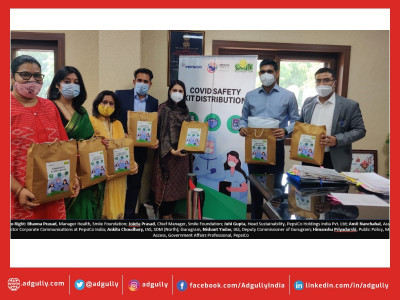53% Indian businesses see marked impact of COVID-19 on biz operations
The Indian economy has been experiencing significant slowdown over the past few quarters. In the third quarter of the current fiscal, the economy grew at a six-year low rate of 4.7 per cent. Investment and consumption demand had been languishing and a number of stimulus measures have been taken to bring back the economy on a growth path. There was a strong hope of recovery in the last quarter of the current fiscal. However, the new Coronavirus epidemic has made the recovery extremely difficult in the near to medium term. The outbreak has presented fresh challenges for the Indian economy now, causing severe disruptive impact on both demand and supply side elements which has the potential to derail India’s growth story.
Tourism, Hospitality and Aviation are among the worst affected sectors that are facing the maximum brunt of the present crisis. Closing of cinema theatres and declining footfall in shopping complexes has affected the retail sector by impacting consumption of both essential and discretionary items. Consumption is also getting impacted due to job losses and decline in income levels of people, particularly the daily wage earners, due to slowing activity in several sectors including retail, construction, entertainment, etc.
With widespread fear and panic now increasing among people, overall confidence level of consumers has dropped significantly, leading to postponement of their purchasing decisions. Travel restrictions have severely impacted the transport sector. Hotels are seeing large scale cancellations not only from leisure travellers, but even business travellers as conferences, seminars and workshops are getting cancelled on a large scale.
According to UNCTAD, India’s trade impact due to Coronavirus outbreak could be about US$ 348 million. India is among the top 15 countries that have been affected most as a result of manufacturing slowdown in China that is disrupting world trade. For India, the overall trade impact is estimated to be the most for the chemicals sector at $129 million, textiles and apparel at $64 million, automotive sector at $34 million, electrical machinery at $12 million, leather products at $13 million, metals and metal products at $27 million and wood products and furniture at $15 million. As per UNCTAD estimates, exports across global value chains could decrease by US$ 50 billion during the year in case there is a 2 per cent reduction in China’s exports of intermediate inputs.
Key Findings of FICCI’s Industry Survey to Assess Impact of Coronavirus
FICCI has attempted to assess the immediate impact of Coronavirus on businesses across the country through conducting interactive sessions and survey amongst the industry members. The survey reveals that besides the direct impact on demand and supply of goods and services, businesses are also facing reduced cash flows due to slowing economic activity which in turn is having an impact on all payments including to those for employees, interest, loan repayments and taxes.
According the survey results:
- A significant 53 per cent of Indian businesses indicate the marked impact of the Coronavirus pandemic on business operations even at early stages.
- The pandemic has significantly impacted the cash flow at organisations with almost 80 per cent reporting a decrease in cash flow.
- The pandemic has had a major impact on the supply chains as more than 60 per cent respondents indicate that their supply chains were affected. The companies also highlighted that they are closely monitoring the situation and expect the impact of the pandemic on supply chain to worsen further.
- Organisations have brought in a renewed focus on hygiene aspects concerning the pandemic. Almost 40 per cent have put in place stringent checks on people entering their offices and disinfection. Nearly 30 per cent organisations have already put in place Work-from-Home policies for their employees.
- Nearly 42 per cent of the respondents feel that it could take up to 3 months for normalcy to return.
For some of the sectors, the work from home proposition is posing implementation challenges as it has a direct bearing on the business operations.
Among sectors witnessing demand slowdown due to outbreak of Coronavirus are:
Entertainment/ Events/ Sports
In some parts of the country like Kerala, Jammu and Kashmir, Delhi, Karnataka and Mumbai, cinema theatres, shopping malls and gyms have been closed till March 31, 2020 to stop the spread of the virus. While exact loss is difficult to calculate presently, but some estimates suggest that theatres in Delhi alone may have to incur a loss of Rs 2 lakh - Rs 10 lakh within a period of 10 days. The announcement has also adversely impacted the television and film industry. While shootings have been suspended and promotional events have been put on hold, it has also affected release of new movies. Several sport events have been either postponed or cancelled, and this brings huge losses for the sports industry. For instance, cancellation of IPL matches alone could mean a loss of Rs 10,000 crore for the industry.
Suggestions
- Provide loans to the multiplex players at low interest rates immediately with one-year moratorium to avoid default on salaries, electricity dues, loans, interest, etc.
- Exemption in Electricity Duty.
- Deferment of ESI and PF of employees for 1 year.
- Exemption from license fee/ duties and show taxes, etc., charged by the Municipal Corporations and State Governments.
Publishing/ Paper/ Printing
India is arguably the fastest growing paper market in the world. The paper industry, especially wood-based paper manufacturers, supports about 5 lakh farmers who are engaged in agro forestry, and supply raw material to the paper mills. Unfortunately, growth in demand is being met increasingly by imports, with under-utilisation of existing domestic manufacturing capacity. Several small industries operating largely in the MSME sector are facing raw material supply disruptions in the wake of the Coronavirus outbreak.
The Government is currently focusing all energies and efforts in containing the Covid-19 threat. As a first step, there is a need to spread vital information about precautions that could help protect individuals from contracting or spreading the virus. A multi-channel approach, covering all mediums of mass communication, including television media, advertisements, and posters in public spaces is pivotal to spread awareness among 1.34 billion Indians in a bid to restrict the pandemic in India.
Suggestion
- Provide subsidy on paper for printing of school books and newspapers as import of pulp from China and other countries has been impacted. A subsidy on paper will enable industry user to spread the messages, advisories and precautions to be taken with regard to limiting spread of Covid-19 in a larger manner.
E-commerce
With a view to prevent community spread of Covid-19, the Government has issued advisory for social distancing and isolation by asking corporates to allow work from home to their employees. Moreover, several State Governments have imposed city lockdown as a preventive measure. Given the likelihood of such lockdowns being extended to several regions across the country, there could be unintended consequences on the e-commerce industry as some of their operations get disrupted. This could affect the e-commerce business, especially at a time when there is a surge in demand for home delivery of goods under present circumstances. While there is a need to ensure safety of all citizens, it is suggested that unintended consequences of any lockdown on the e-commerce industry be looked into.
Suggestion
- There is a need for a carve-out for the e-commerce company operations in case of urban lockdowns. The government should ensure that e-commerce operations do not get affected due to lockdowns and other restrictions imposed by the State governments.
Retail
The outbreak of Coronavirus is having a severe impact on people, economy and business. As responsible corporates, all retail players are adopting necessary preventive actions to ensure safety of their employees and customers. The end objective is to ensure easy and uninterrupted availability of essential food and grocery products at affordable prices so that people don’t panic. During these critical times, it is imperative for all stakeholders to come together.
Given the widespread effect of Covid-19, business across sectors is looking gloomy, impacting economy at large. Shutting down of malls has severely hurt business for all retailers. This could lead to major job losses as companies won’t be able to sustain this for too long.
Suggestions
- Ministry of Finance to provide financial relief to retail players by announcing special rebate measures to ease cash flow and provide some relief on GST front.
- Reduce GST on essential food and grocery items and also waive off 0.1% TCS provisions that will be effective April 1, 2020.
- There should be a moratorium on TDS for all service providers.
- GST payments to be deferred by 3-6 months.
This will give some respite to the organisations by easing cash flows at a time when business is on a steep downturn and also help avoid massive job cuts and closure of businesses.
Consumer Durables & Electronics
India imports 45 per cent completely built units of consumer durables from China. In addition to finished products, India also imports nearly 70 per cent of the components for television, and other consumer durable products such as air conditioners, refrigerators, and washing machines. Due to supply disruption, sales of these items are likely to be hampered. Also, Chinese suppliers have reportedly increase the prices of some components by more than 2 per cent, and prices of TV panels by more than 15 per cent. Hence, it is anticipated that prices of these consumer durable items will see a price increase in the range of 3-5 per cent.
Mobile Phones
Most of the components for mobile manufacturing are sourced from China. With continued shutdown of factories in China, mobile manufacturing companies are also facing a fate similar to that of pharma and auto companies. Short supply of components led to a rise in prices of mobile parts, which, in turn, resulted in increase in the prices of mobiles. Companies have also been forced to postpone launch of new variants of mobile. India Cellular & Electronics Association estimates suggest that mobile phone manufacturers could see a production impact worth Rs 6,000 crore during March and April due to the disruption in the supply chain.
Also Read:
Hindi News genre sees 19% growth in market share amid COVID-19 concerns
















Share
Facebook
YouTube
Tweet
Twitter
LinkedIn